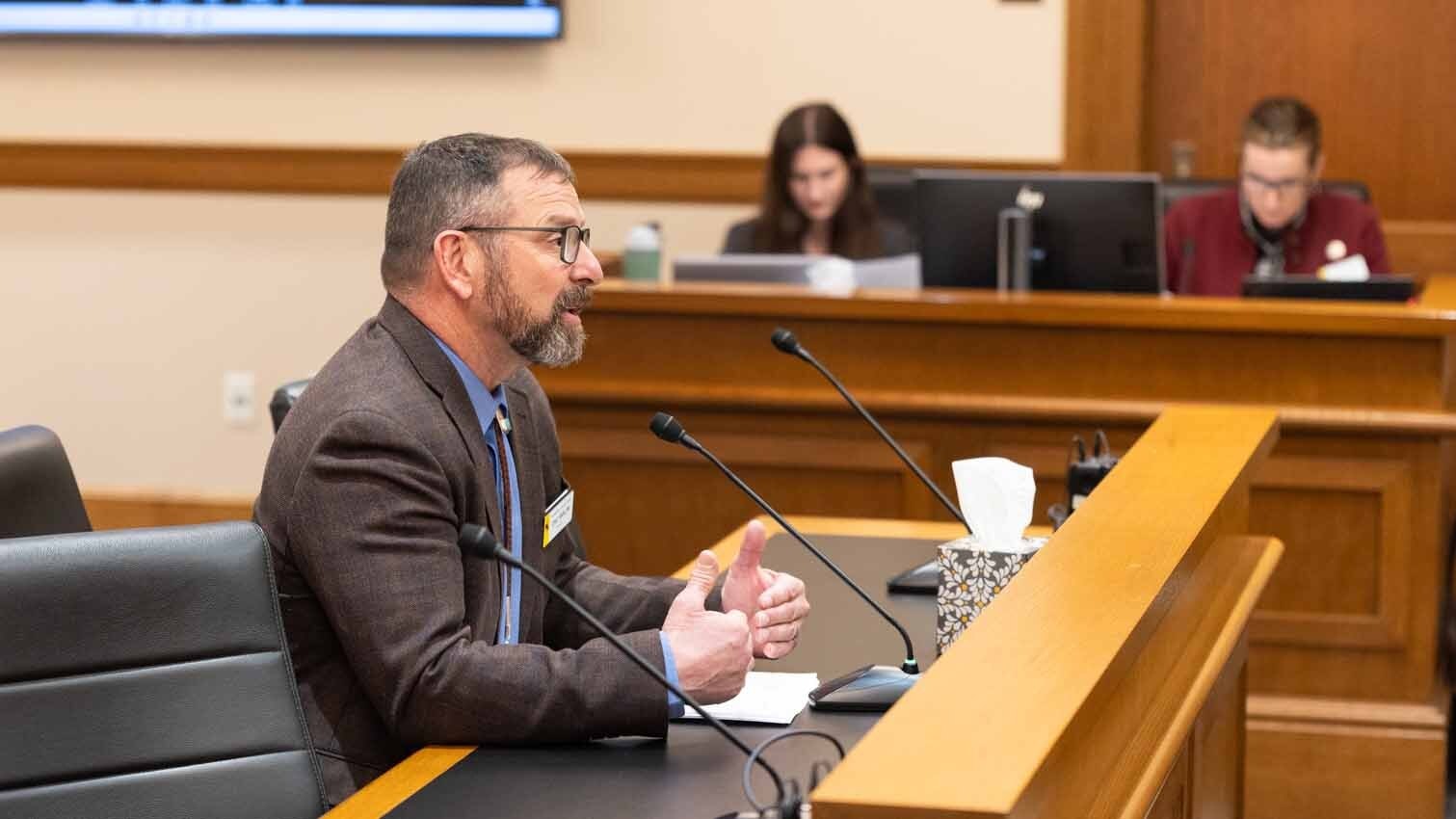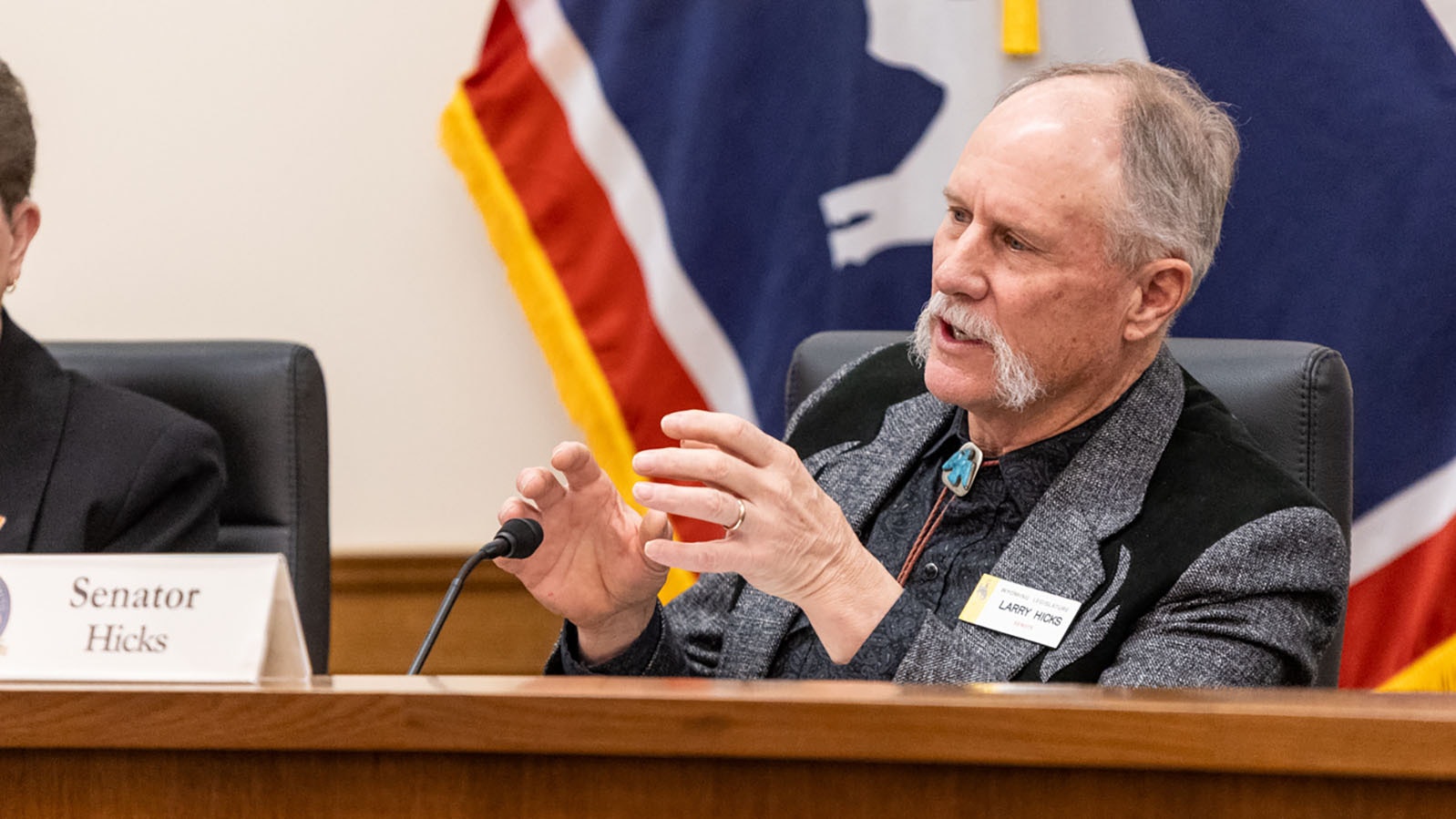Wyoming lawmakers are grasping how to prosecute gambling houses and dealers operating under the regulatory table without, as one lobbyist put it, making “grandma and her friends felons or crooks for playing Texas hold 'em at coffee every morning.”
It’s a difficult balance.
The Laramie County District Attorney’s Office recently declined to pursue a case of alleged professional gambling in which there was a question of whether those involved had a “bona fide social relationship,” or an exception to the crime of gambling designed to let friends still bet on games together.
The Natrona County District Attorney’s Office gave a favorable settlement to a man who challenged the state’s gambling laws as unconstitutionally vague, while pointing to that same exception among others.
Ultimately on Thursday during their meeting in Cheyenne, the legislative Select Committee on Gaming voted to advance a bill that would target gambling “houses,” dealers, and game organizers — and that would define “bona fide social relationship.”
Where’s The Line?
That’s after the state’s legal authorities have clamored for a definition of the term for years.
Wyoming Liquor Association executive director Mike Moser voiced the concern about criminalizing people who gather in coffee shops and bars for a friendly game.
“We’ve allowed social poker in businesses in Wyoming for the last 150 years,” said Moser, before referencing the coffee-shop Texas hold ‘em game.
“We want to stop professional gaming” under the regulatory table, he added.
The bill draft the committee considered initially would have kept prosecutors from charging people with gambling:
- “in a private manner, at a private place or at a business or fraternal organization for which the primary source of revenue … is not derived from (gambling),”
- where event is not advertised or open to public participation,
- where it’s between people with a bona fide social relationship,
- doesn’t involve gambling bots or machines,
- and where no one “receives any economic benefit from the game, wager or transaction other than the direct realization of winnings.”
Meaning, if people set up a private game, prosecutors couldn’t just prosecute the winner, but could prosecute the “house” for taking a cut, if a “house” is involved.
That language was too broad, said Sen. Troy McKeown, R-Gillette.
He feared the language about “economic benefit” could criminalize bars or coffee shops that enjoy more beer or liquor sales because a few people like to gather there for routine cribbage games with stakes.
McKeown fumbled for an answer and turned to Legislative Service Office (LSO) counsel Tamara Rivale for clarity.
Rivale said she was up against a tough deadline to solve that quandary.
This was the select committee’s last meeting before the lawmaking session unless it gets permission for another from the Management Council, she said.
Committee Chair Sen. John Kolb, R-Rock Springs, called for a 10-minute break.
During that time Rivale came up with an alternative to the “economic benefit” language.
The game would become criminal if anyone received “remuneration for facilitating, participating, hosting, or organizing” it, under the proposed language.
McKeown loved that wording, he said.
“If I’m running a coffee shop and I’m making more money by selling more coffee, good on me,” he said. Some of the other proposed alternatives, he added were “going after the small business owners who don’t probably care if (people are) playing poker in there.”
The committee adopted that amendment.
Friend Zone
The committee also adopted an amendment Sen. Barry Crago, R-Buffalo, offered, adopting LSO’s proposed definition of bona fide social relationships.
That’s been the tricky point all along, Moser said.
He wondered aloud whether defining the term would be futile.
“The reason that wasn’t further defined (during earlier legislative efforts in 2007) is, there’s really no way to effectively enforce a bona fide social relationship,” said Moser. “If we’re playing poker and law enforcement comes in and says, ‘Well do you know this guy?’ I’ll say, ‘Yeah, I went to high school with him and I dated his sister.’”
Laramie County District Attorney Sylvia Hackl, however, said that the amendment is “helpful.”
In the criminal case she’d contemplated but couldn’t pursue, the gamblers had paid a membership fee, which she compared to Sam’s Club dues.
Though she disbelieves the argument that such a membership forges a bona fide social relationship, she still had doubts that she could launch the case past the preliminary phase of establishing probable cause — let alone through a jury’s last reasonable doubt.
The definition LSO offered, and the committee adopted to the draft, says people with a bona fide social relationship would all know each other for reasons beyond gambling. It also says each person would have “an established knowledge of the other.”
Gaming Versus Gambling
Wyoming permits and regulates multiple types of “gaming,” which it exempts from its felony and misdemeanor “gambling” crimes.
Those include sports wagering, pari-mutuel (or pool) betting, and skill-based amusement games.
There are many other exceptions to the crime of gambling.
For example, raffles conducted for charitable purposes are legal.
The proposed bill would tighten that exemption so that only raffles directing 100% of their proceeds to charity would be non-criminal.
Bingo games and pull tabs are exempted, as are “bona fide business transactions which are valid under the law of contracts,” and “bona fide contests of skill, speed, strength, or endurance,” but only for the participants in those contests.
Meaning, a person could bet on himself if he thinks he’ll beat others in a footrace. But non-racers couldn’t bet on the racers unless the wager fell under another exception of the law.
The committee, which can’t field its own bills since it’s not a standing committee, is advancing its new version of the bill draft to the Management Council.
Crago said the Management Council has more time for dealing with such an effort than the Judiciary Committee.
Clair McFarland can be reached at clair@cowboystatedaily.com.






